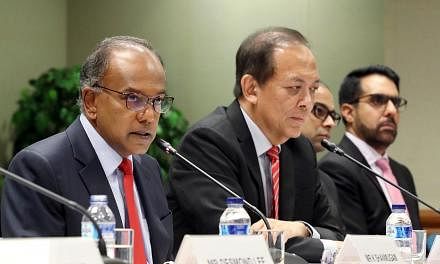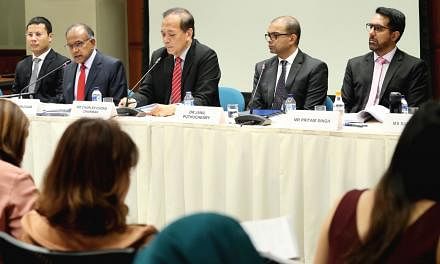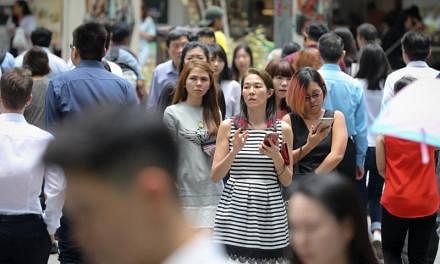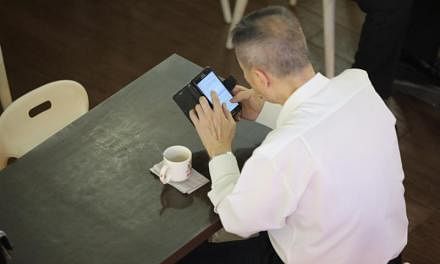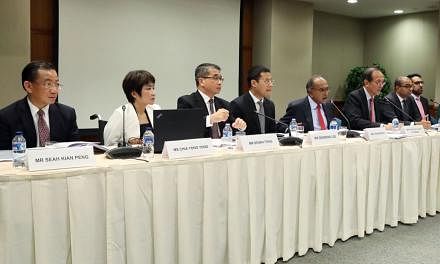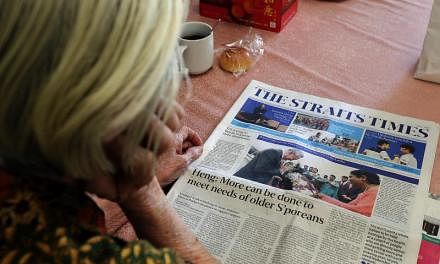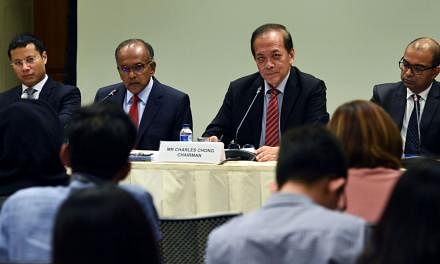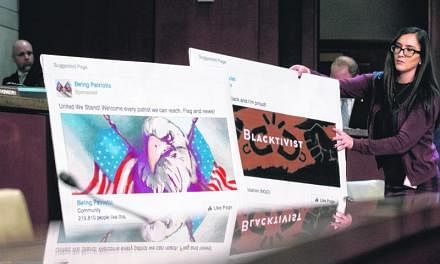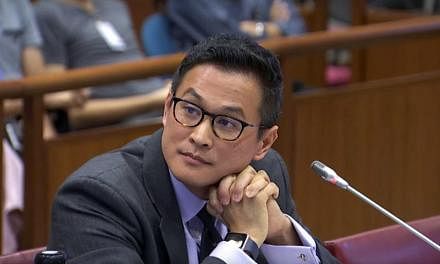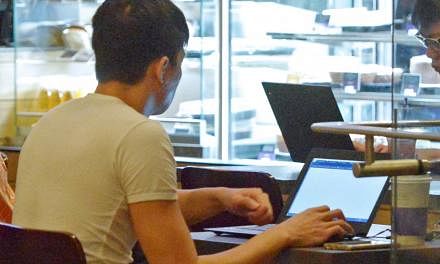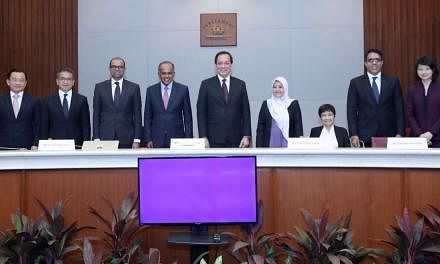SINGAPORE - The former editor of an online news site urged the Government to better engage citizen journalists, and even consider funding programmes to help them hone their skills.
Mr Andrew Loh, who co-founded The Online Citizen (TOC) in 2006, said in his written submission to the Select Committee on deliberate online falsehoods that he hoped to see the Government "link arms... with (citizen journalists) who can do better if they had the resources to do so" instead of keeping them at arm's length.
This, he said, could be an additional weapon in the fight against fake news.
At the public hearing on Wednesday (March 28), he told the committee: "I've always wondered why not the Government engage instead of confront... To combat falsehoods, we need everyone on board - and I agree with that, because we're talking about things like national security, our sovereignty, and our national harmony."
He added: "In order to shield ourselves, to build this resilience, you need everyone on board, and that everyone must include the alternative media."
Acting chairman Seah Kian Peng acknowledged the point, assuring Mr Loh that the committee was seeking a range of views, and looking at a multi-pronged approach in dealing with online fabrications.
Mr Loh had noted in his written submission that online content producers are mostly short on resources and amateurs when it comes to news reporting. "We are often unaware of the pitfalls of some of these so-called 'out-of-bound markers', and even basic writing skills."
Online users, not infrequently, run into trouble with the authorities. Often, this is not out of "malicious intent" but owing to their limited resources, he said.
He added: "In my opinion, some of these occasions could have been avoided if these online users were better informed in the law, and trained in the skills of journalism, or simply story-writing."
Mr Loh suggested in his submission that the Government step up engagement with citizen journalists - a move he believes will help improve the online space.
It could even consider setting up a fund to help these content producers boost their writing or journalism skills and encourage people with legal and journalistic know-how to conduct lessons or workshops for the online community, he said.
"If nothing else, such a move would signal to the public that the Government's position is not one of simply meting out punishment and penalties and threats, but also one of going upstream, in effect, in its effort to stamp out fake news by helping to equip information disseminators with better skills," he wrote.
"I do believe in the potential of such initiatives, which could also help change the tone of the current 'us-vs-them' situation we have."
The suggestion of a fund was met with interest by Select Committee member Edwin Tong, who said it was an idea the committee would consider.
Said Mr Tong at the hearing: "The idea is... to inoculate, to make sure that we build a more resilient society. And I don't think anyone on this committee will disagree with that."
The conciliatory note came after he and Mr Loh tussled for morethan 30 minutes over such issues as whether legislation like the Administration of Justice Act is used more heavily against alternative media compared to mainstream media, police powers, and trust in traditional media.
They also debated intent, with Mr Loh saying a person would need to have "malicious intentions" to be guilty of propagating online fabrications.
Mr Tong c ountered that harm through such fabrications can be caused intentionally or otherwise, but noted that those who did so intentionally would be dealt with differently from those who did not.
"As a broad concept, you would agree?" he asked.
Mr Loh responded: "I see no reason to disagree here."
Mr Loh in his submission said alternative sites are already willing to engage with the authorities, adding that TOC, as far as he was aware, had never denied or rejected publishing - often in full - letters or clarifications received from the authorities.
An annual dialogue between the authorities and citizen journalists, for instance, could help both sides share their perspectives, he added, noting that such meetings were held after the 2011 general election between new ministers - including labour chief Chan Chun Sing and Speaker of Parliament Tan Chuan-Jin - and members of the public and the online community.
Said Mr Loh: "Having been privileged to have attended some of these occasions, it was a pity to me that they were not continued. The Government should consider re-introducing such meetings, and make them a permanent feature in its engagement plans."
At Wednesday's hearing, he agreed there should be a range of remedies, depending on the degree of culpability of the person involved, but urged the Government to be mindful not to overreach, stifling freedom of expression.
"I've been doing this for more than 10 years online, interacting with these people that you might want to be legislating against," he told the select committee. "From my experience, I can tell you that if you engage, you may have a different outcome - and that outcome may be better than legislation.''
As his hour-long session drew to an end, Mr Loh said citizen journalists at times face roadblocks when they seek out facts, and are then accused of propagating falsehoods.
"I hope the Government will understand we are not troublemakers. I don't hide. I'm not anonymous. When I started TOC in 2006, the very first thing I told my team was we're not going to use pseudonyms... because we are Singaporeans," he said.
Public hearings to fight online falsehoods: Read the submissions here and watch more videos.


